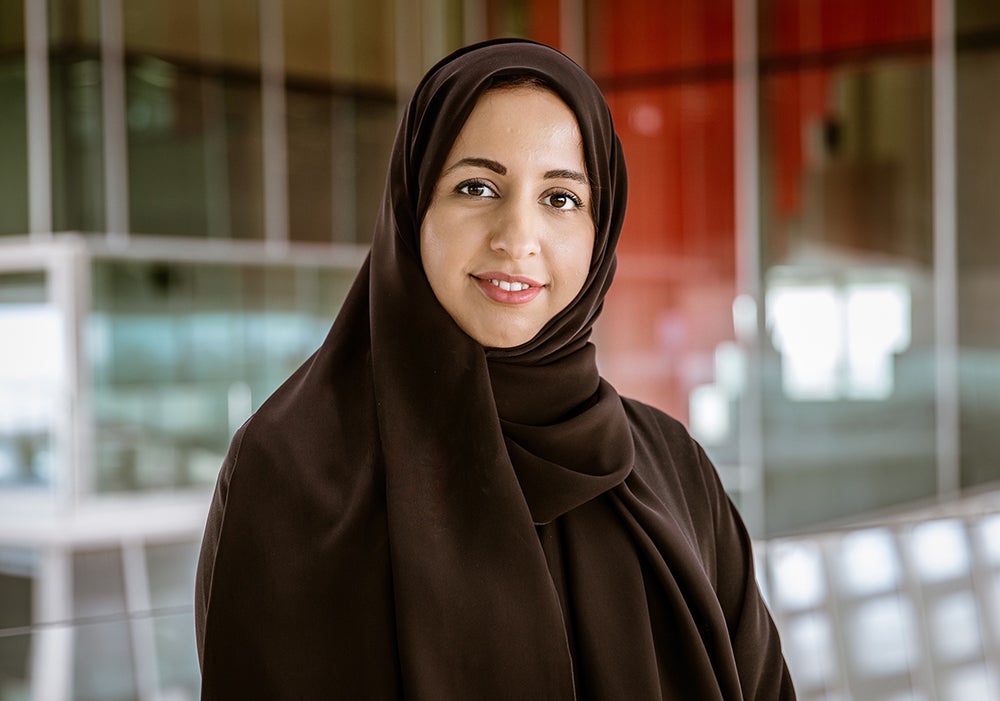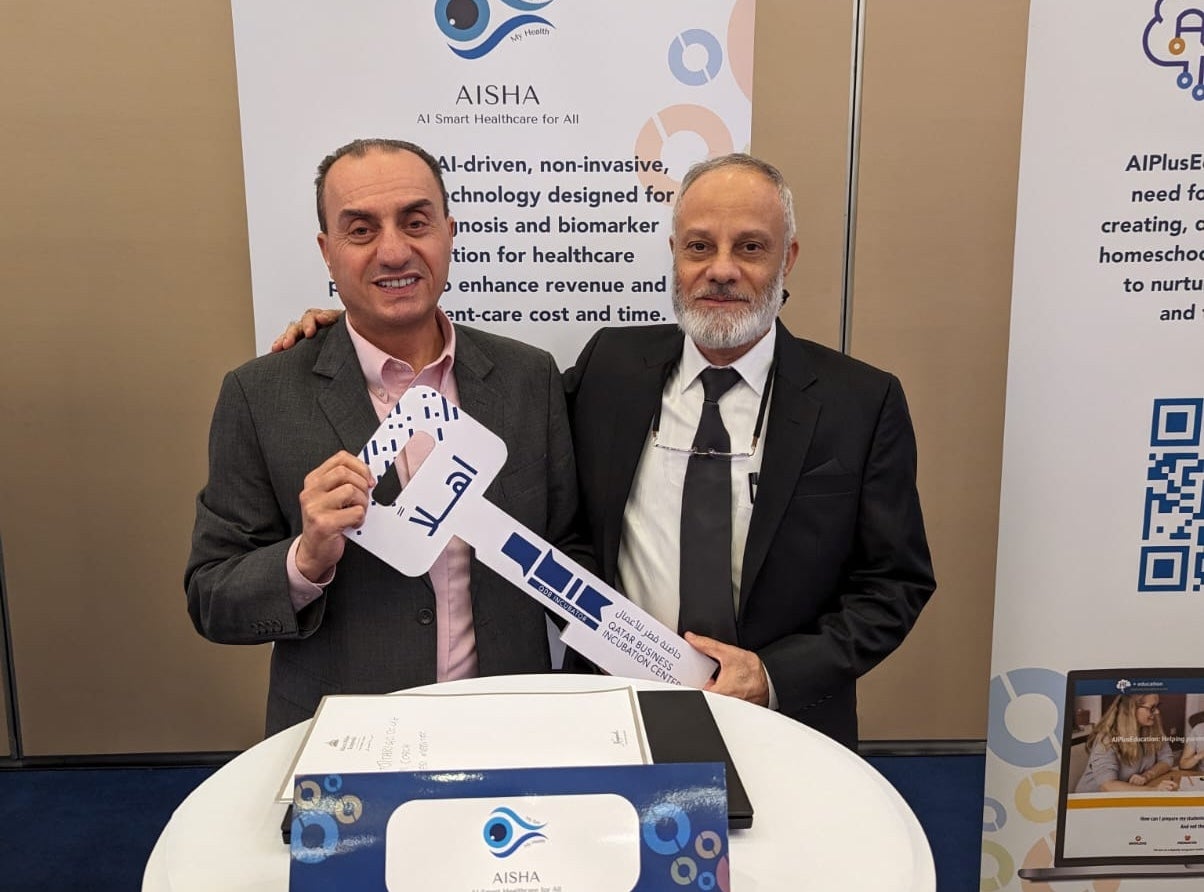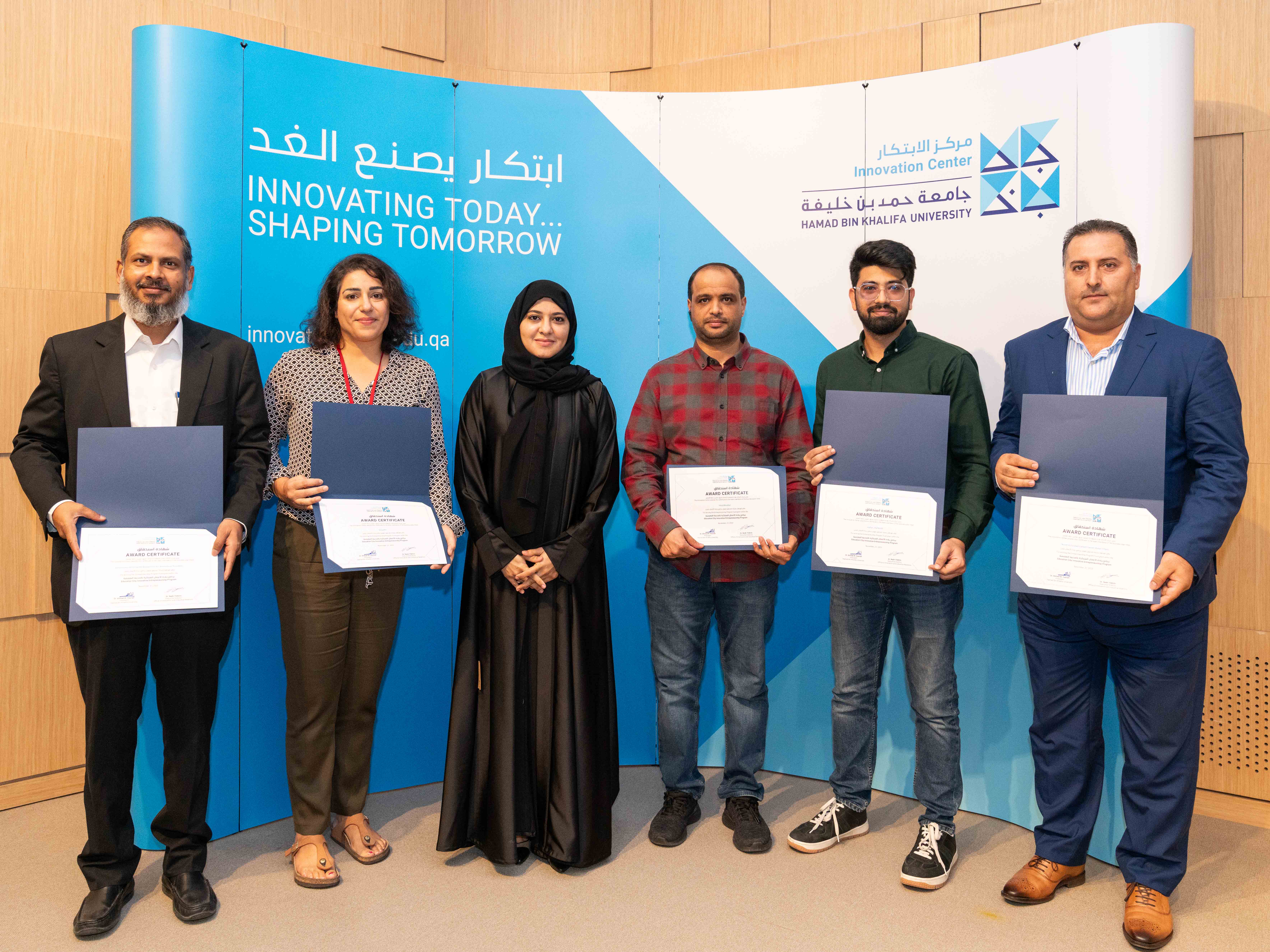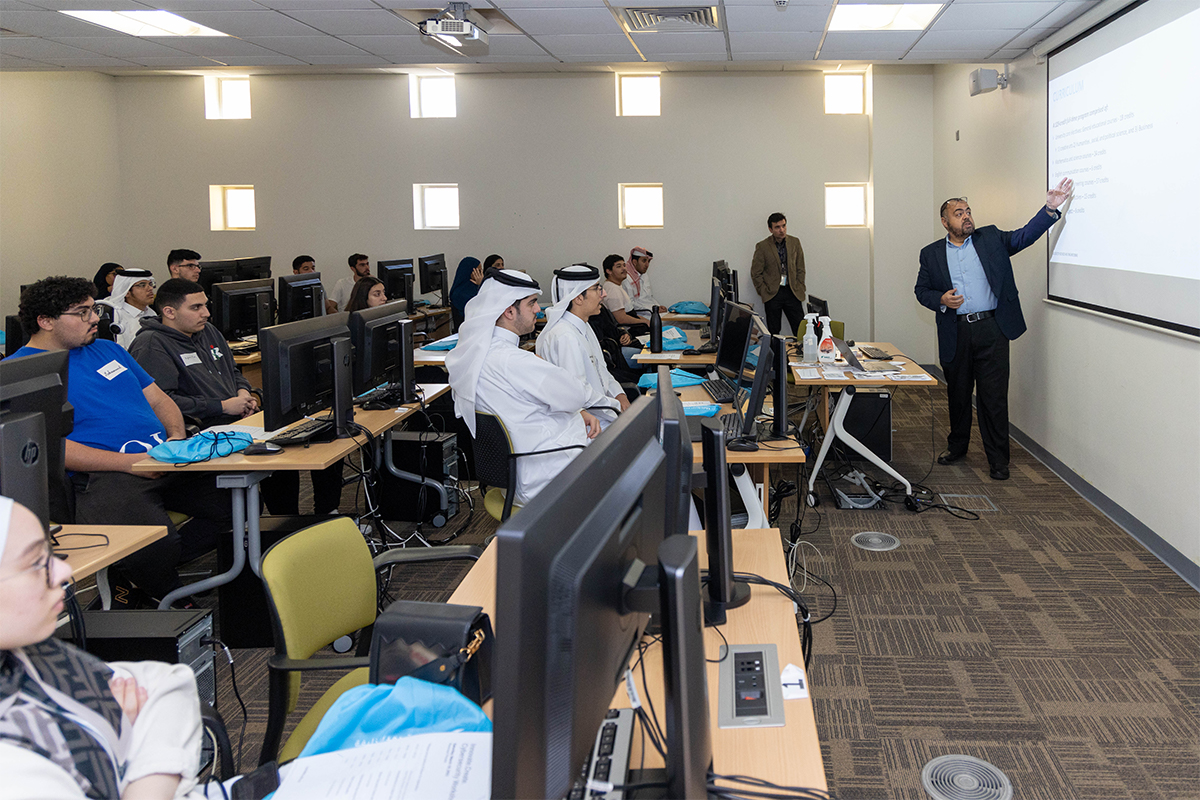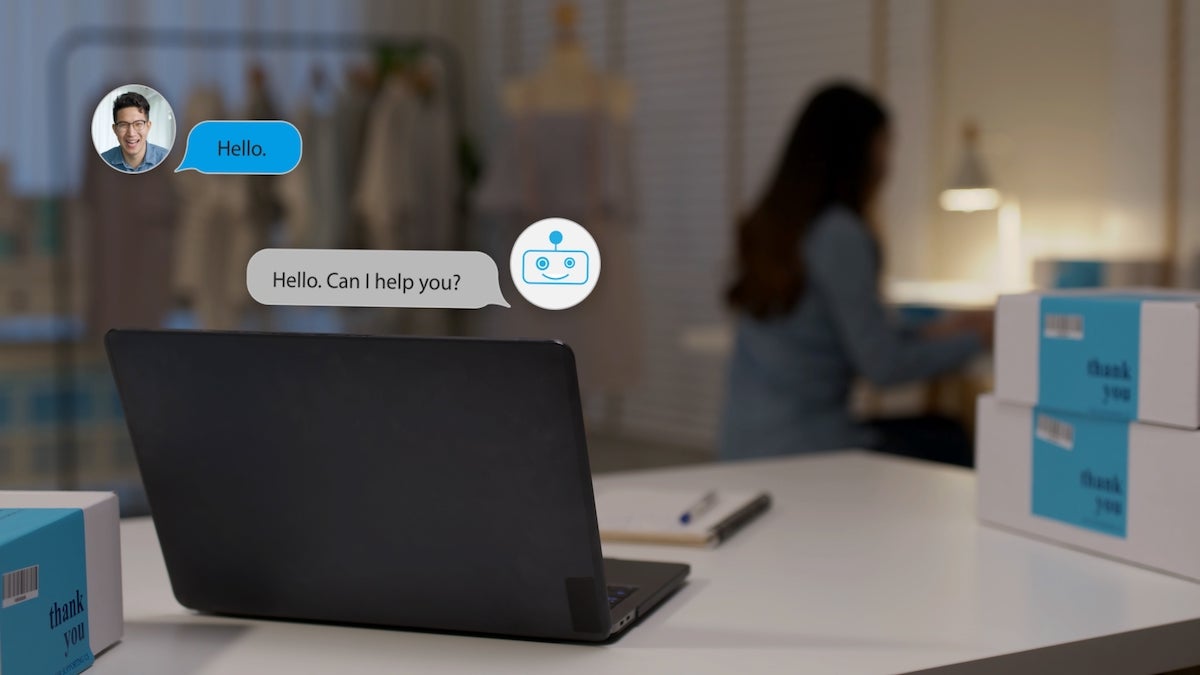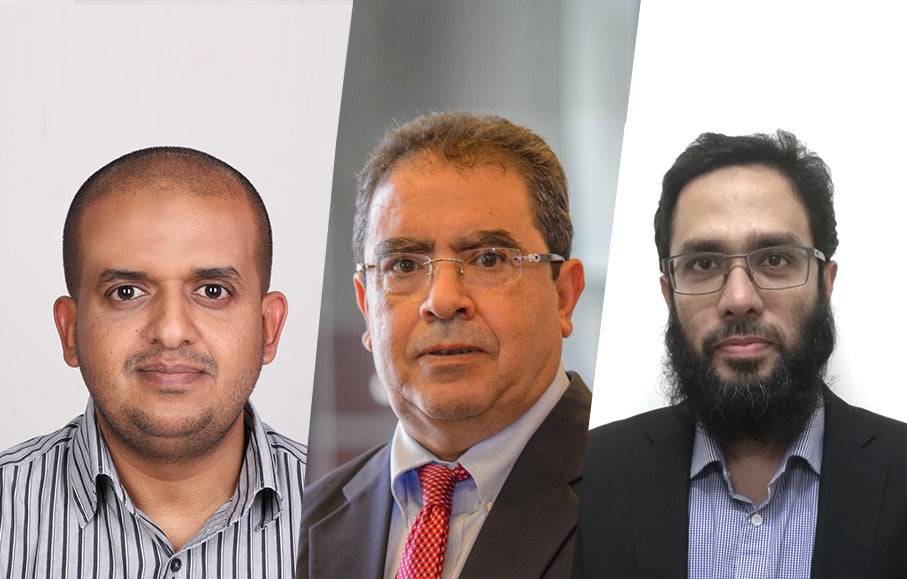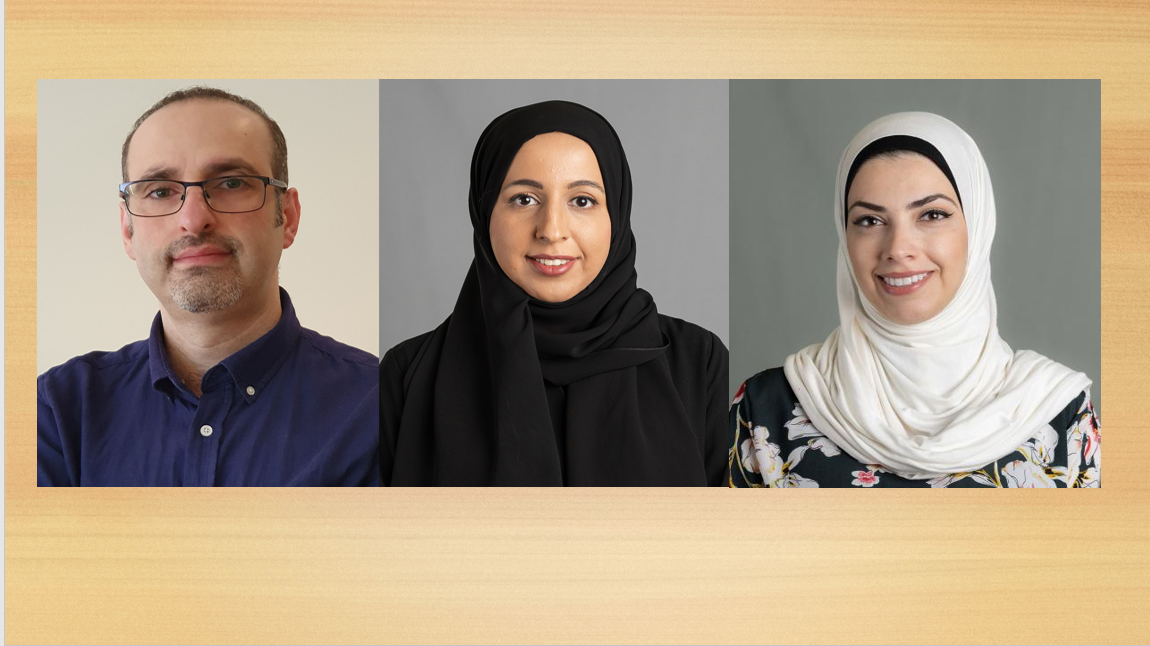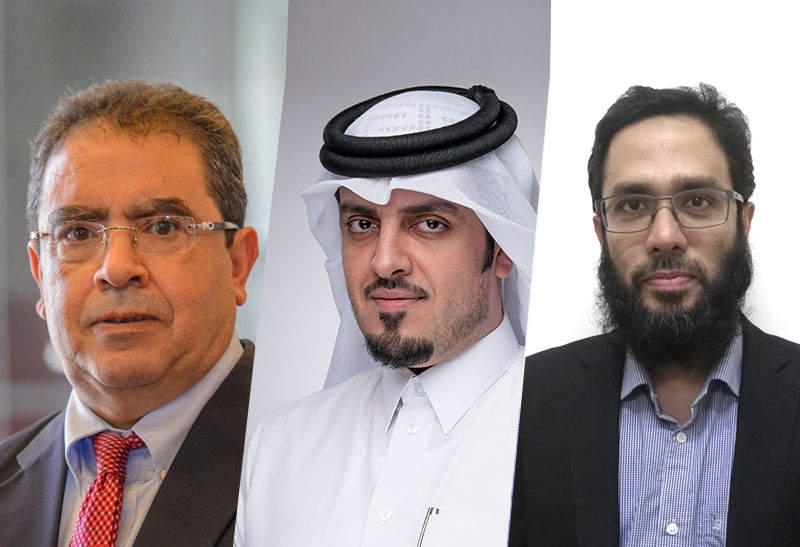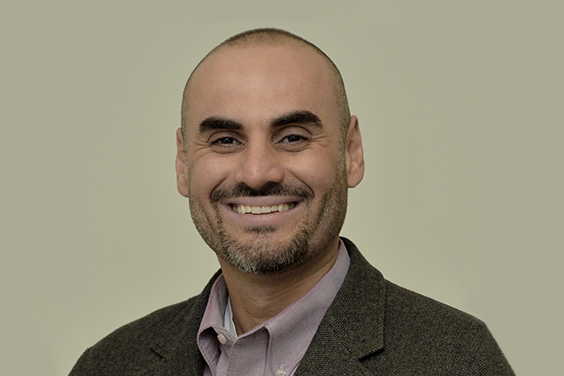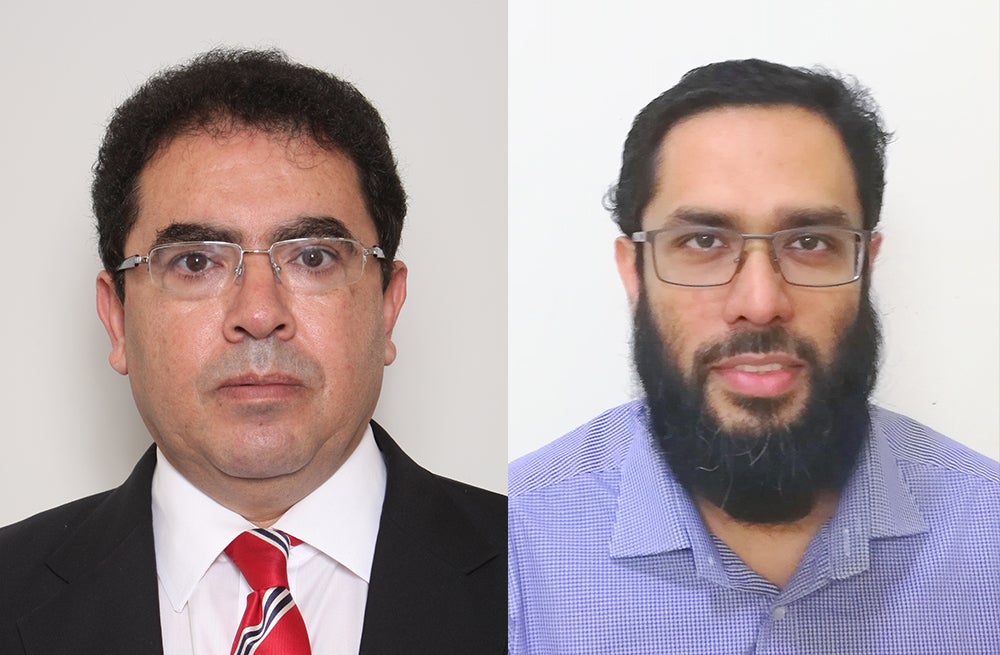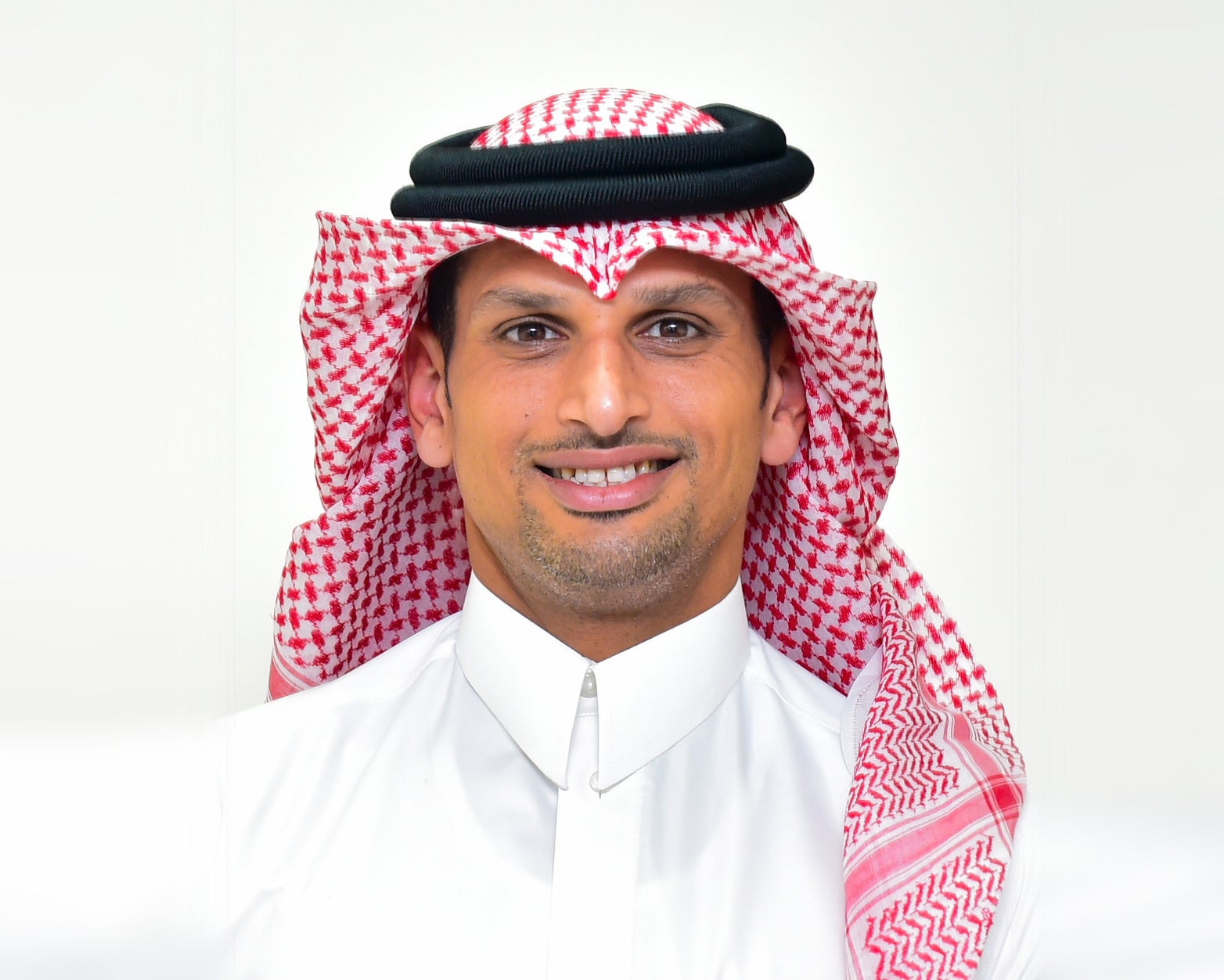
AI Will Revolutionize Healthcare, But It May Take Time
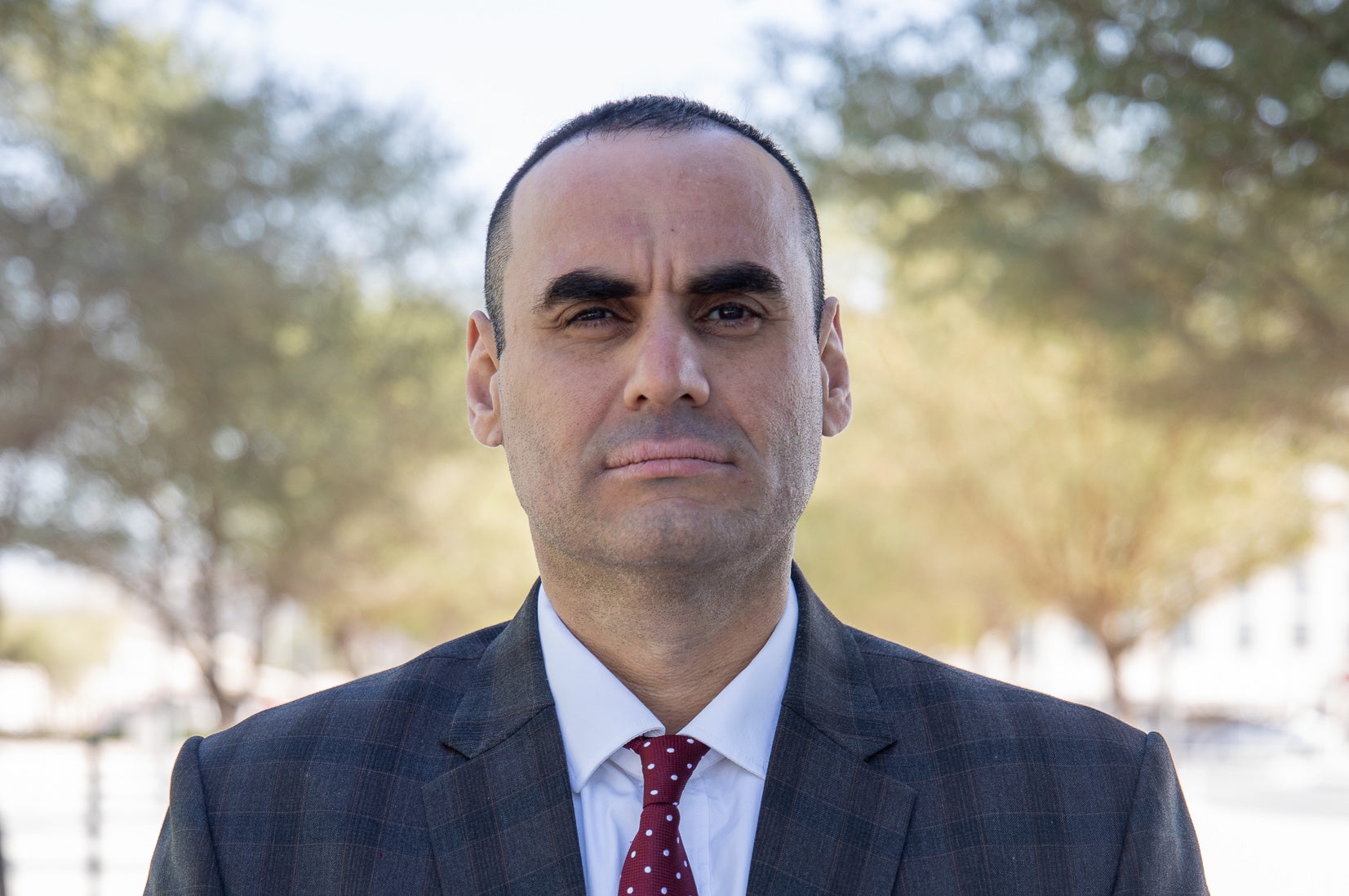
In the second of a three-part series discussing the role of Artificial Intelligence (AI) within the healthcare sector, we speak to Dr. Mowafa Househ, an Associate Professor at The College of Science and Engineering, part of Hamad Bin Khalifa University, about his views on the topic.
How do you view the role of AI in healthcare?
I strongly believe that AI will revolutionize healthcare. As the American cardiologist, scientist, and author Eric Topol said, it would make healthcare human again by allowing algorithms to diagnose and treat diseases while physicians understand the information and communicate it in an empathetic way to patients.I believe in future, patients will not be looked upon as a disease or a number or even a patient for that matter, but rather as a consumer seeking help and support to treat, understand and deal with the ailments they are going through. I believe in future, for example, instead of having the physician go through the traditional diagnostic process, the algorithm willl do most of the work and the physician will then validate the information and communicate, inform and educate the patient and actually spend more real time with them.
It may sound far fetched, but theoritically and technically it is possible. From a human behavioral or organizational behavior perspective, that may take a long time to transpire. The future of AI in the health industry is very bright, but I think the road getting there will be long and very bumpy.
What are the challenges?
We need to focus on the purpose of using a technology rather than relying on technology itself to solve a particular healthcare problem or challenge. Focusing on the technology itself as an answer to our problems is a problem in itself, which has led to (and can lead to) a host of mistakes and a waste of valuable resources in a scarce healthcare environment that could have been used to hire more clinicians or purchase medical supplies.
Technologists think that technology can solve all healthcare problems, but many clinicians reject using technology that does not meet their information or clinical needs. Information scientists such as myself, on the other hand, focus on the problem and try to find out what type of information can help resolve a particular challenge and match the appropriate technology or tools to resolve that particular issue.
Can you give us an example?
One time we went to visit a family physician who wanted to find ways to manage his diabetic patients. I was with a computer scientist who was showing how wearable technology data can be analyzed using AI and used some amazing visualization techniques that summarized a lot of information for the doctor. The physician said it looked nice but he didn’t need this information, he couldn't integrate it in his workflow and it didn’t answer the questions he needed. This is where I came in and asked a number of questions so that I could fully understand the entire picture of his healthcare needs and whether or not AI might be part of the solution or not.
The questions I asked were very simple: What type of questions go through your mind when you are with a patient? What information, variables or data sources do you need to access from the electronic health record to answer each question you pose? How often do you make them?
I go down this road to understand the information needs and will then try to integrate technology to help answer the physician’s question and determine how I can integrate the information required into the workflow with minimal interruption.
How do we make more use of AI in the healthcare sector in Qatar?
I think there are many ways, but we first need to align the AI strategy with the Qatar National Health Plan (https://extranet.who.int/ncdccs/Data). The national health plan focuses on 16 areas and has four strategic enablers. We need to work with the healthcare community to identify problems according to the healthcare plan and address them to see if AI can help in addressing them. We need to learn from other organizations within the region and around the world that are implementing AI and are successful at doing it. We need to enhance our knowledge from experiences that are scientifically valid or come from sources we know and trust. We also need to learn about the challenges in using AI and we need a more holistic understanding rather than a technical understanding of A. use in organizations.
Does relying heavily on AI in healthcare have any drawbacks, and in what way?
Healthcare is a very human and complex area that suffers from a number of challenges that AI can either help or make worse. In industries where information needs are clear, such as travel, finance, or mobility services, developing AI systems can help make the industry more efficient and robust.
For example, Uber, financial trading instruments in the stock market. However, when it comes to healthcare, information needs are multi-layered and multi-faceted and on top of that there are ethical issues such as bureaucracy, finances, organizations, policy, population trends, technological development are changing so fast that healthcare is always lagging in implementation and use of such technologies.
Relying on any tool in a complex multifaceted environment at this point in time is very risky, especially, as many of the technological digital health tools lack rigorous evaluation studies. But digital health technologies, whether powered by AI or not, are and will continue to have an impact.
What work is CSE conducting on AI in healthcare?
CSE has been collaborating with Hamad Medical Corporation on multiple projects, including:
- An AI-assisted, automated pipeline for treating used N95 masks (funded by an HMC internal research grant). This project, led by Dr. David Yang and Dr. Hamish Mackey, aims to make N95 masks reusable through a series of automated treatments such as UV lights. HBKU’s responsibilities include 3D printing several parts, and jointly developing an AI-based robotic arm that picks up a used mask and places it onto the pipeline.
- A smart microscope for histopathologists (funded by an HMC Innovation grant). In this project involving Dr. David Yang, Dr. Marco Agus, and Dr. Jens Schneider, CSE aims to build an AI-assisted microscope that automatically analyzes histopathological images. HBKU’s role is to create the required AI models for medical image segmentation, and deploy the model onto an edge AI device connected to the microscope.
- We are also working on an emotion sensing recognition application that can analyze the emotions of children through AI that can help parents and children bond through art and assess their emotional needs.
Related News
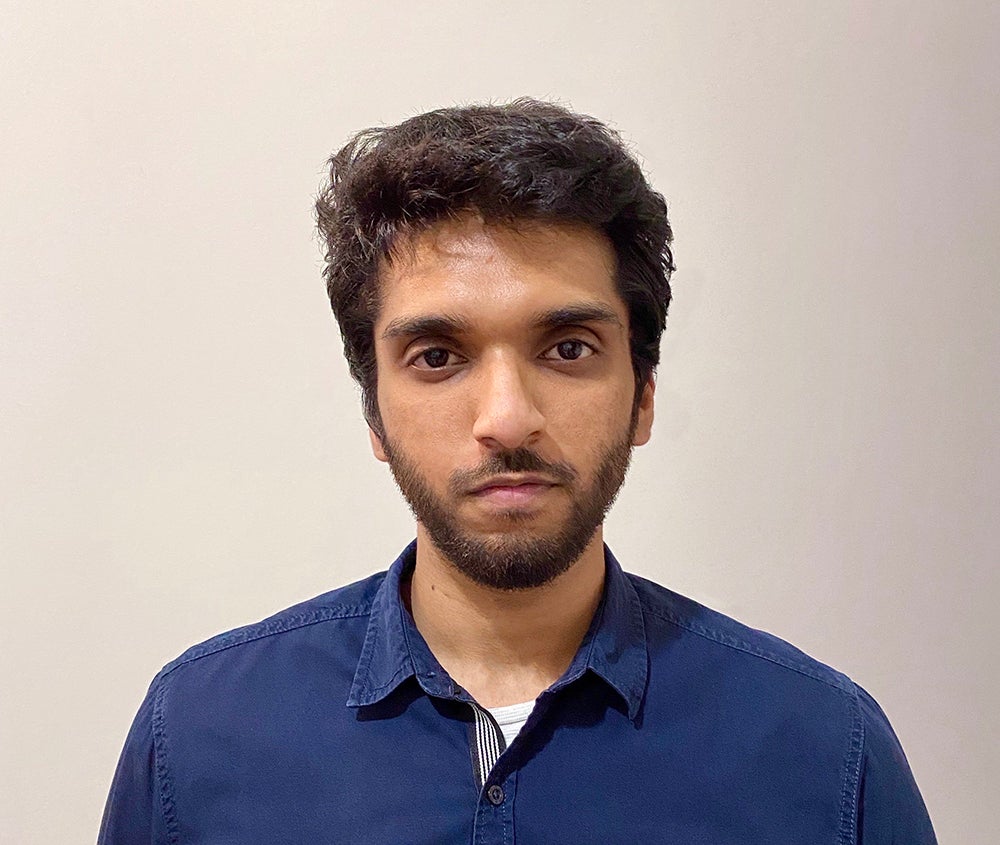
Statistical Modeling Can Help Us Understand How Phase Two of the Lockdown Lift is Faring
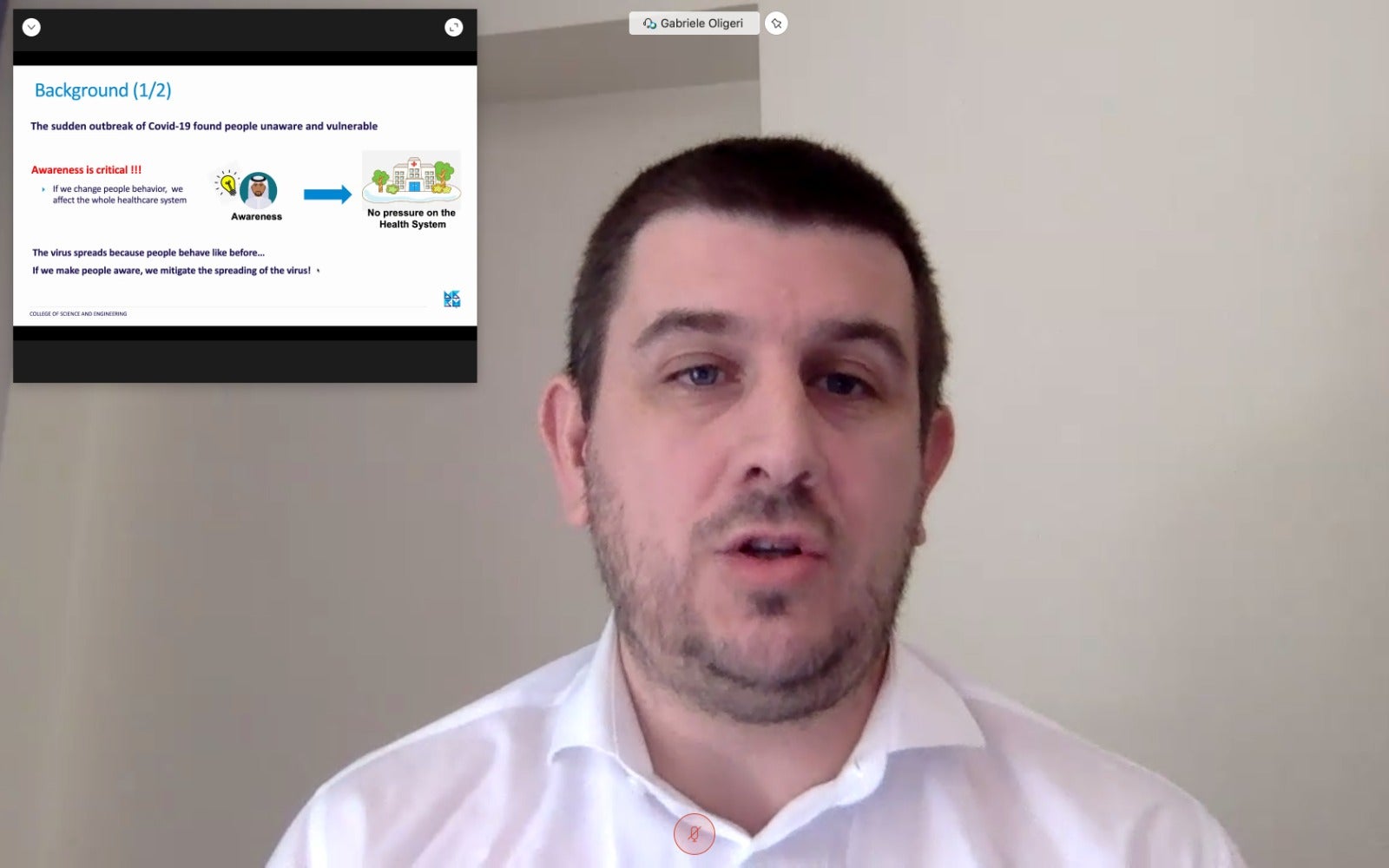
HBKU’s College of Science and Engineering Collaborates with MoTC to Deliver Webinar Series
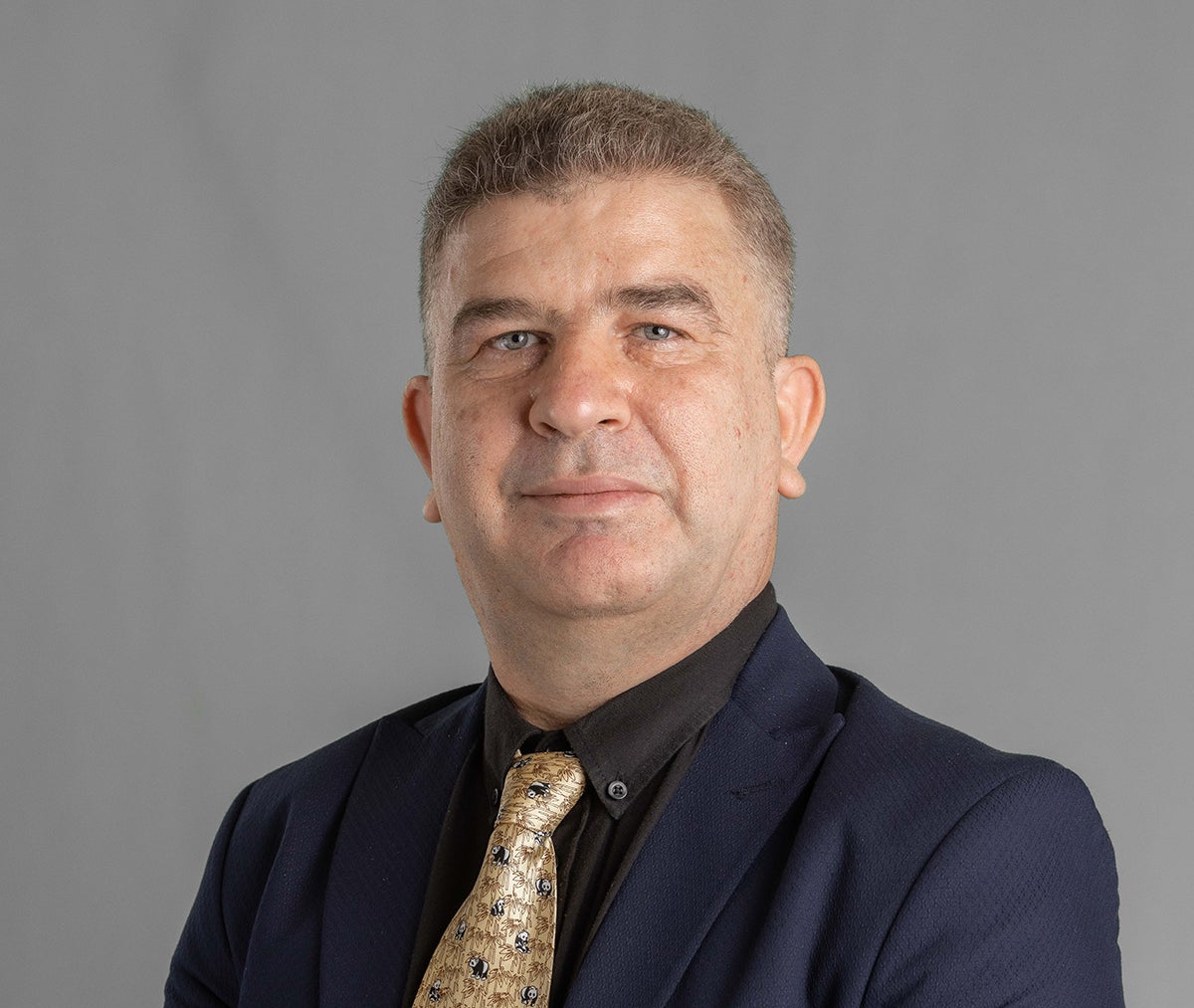
Human-Machine Interaction: HBKU’s Smart Vision Sensor Aims for Next-Level Intelligence
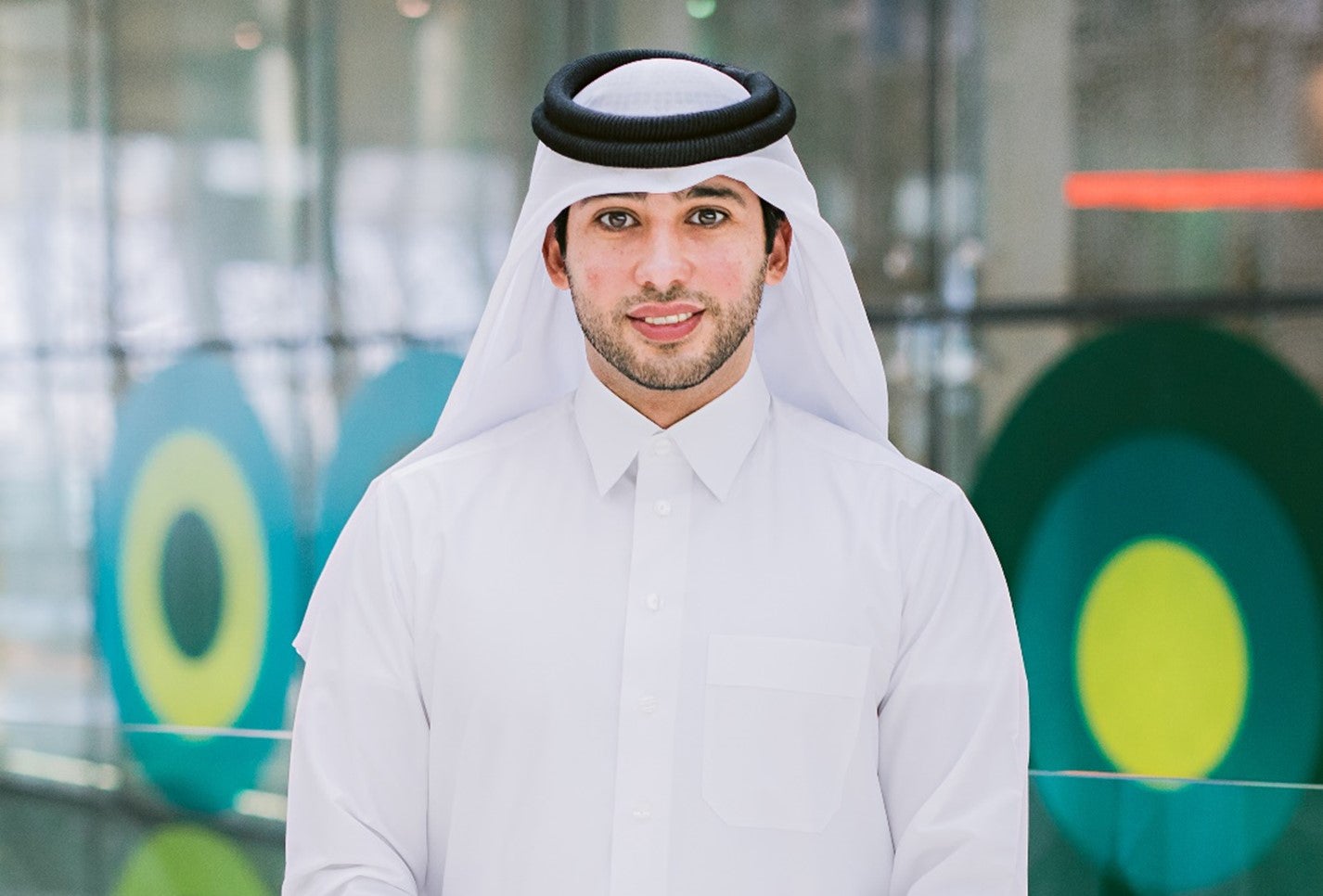
Record-Setting Billion-Cell Reservoir Simulation for Giant Oil and Gas Fields Achieved by HBKU’s College of Science and Engineering
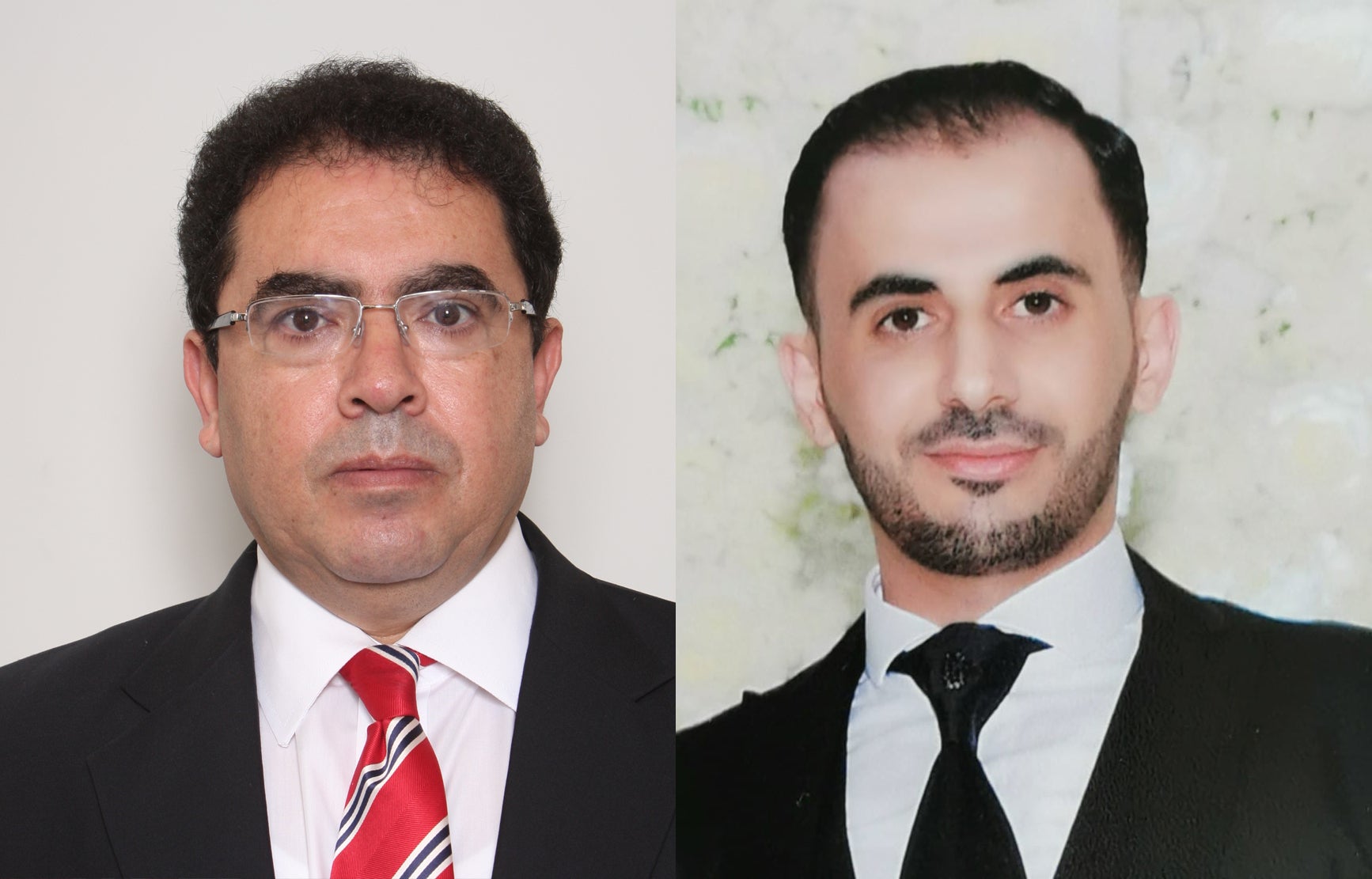
HBKU’s College of Science and Engineering Delivers Training on Health Informatics Research Methods
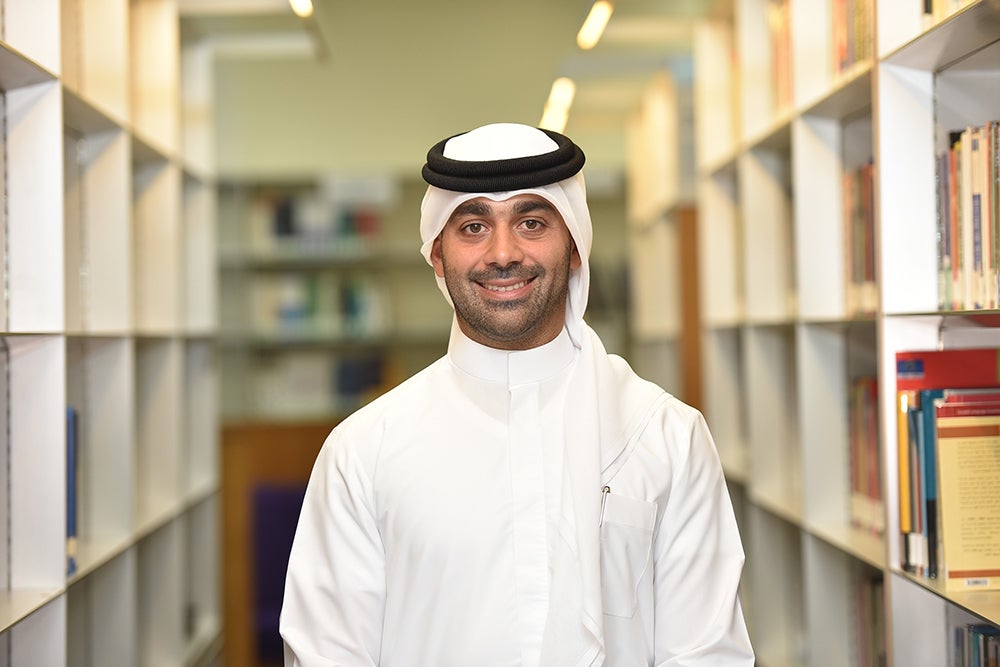
QF's HBKU and Norwegian Company Yara Sign Agreement to Support Food Security Efforts

Statistical Modeling Can Help Us Understand How Phase Two of the Lockdown Lift is Faring

HBKU’s College of Science and Engineering Collaborates with MoTC to Deliver Webinar Series

Human-Machine Interaction: HBKU’s Smart Vision Sensor Aims for Next-Level Intelligence

Record-Setting Billion-Cell Reservoir Simulation for Giant Oil and Gas Fields Achieved by HBKU’s College of Science and Engineering

HBKU’s College of Science and Engineering Delivers Training on Health Informatics Research Methods

QF's HBKU and Norwegian Company Yara Sign Agreement to Support Food Security Efforts

Statistical Modeling Can Help Us Understand How Phase Two of the Lockdown Lift is Faring

HBKU’s College of Science and Engineering Collaborates with MoTC to Deliver Webinar Series

Human-Machine Interaction: HBKU’s Smart Vision Sensor Aims for Next-Level Intelligence

Record-Setting Billion-Cell Reservoir Simulation for Giant Oil and Gas Fields Achieved by HBKU’s College of Science and Engineering

HBKU’s College of Science and Engineering Delivers Training on Health Informatics Research Methods

QF's HBKU and Norwegian Company Yara Sign Agreement to Support Food Security Efforts

Statistical Modeling Can Help Us Understand How Phase Two of the Lockdown Lift is Faring

HBKU’s College of Science and Engineering Collaborates with MoTC to Deliver Webinar Series

Human-Machine Interaction: HBKU’s Smart Vision Sensor Aims for Next-Level Intelligence

Record-Setting Billion-Cell Reservoir Simulation for Giant Oil and Gas Fields Achieved by HBKU’s College of Science and Engineering

HBKU’s College of Science and Engineering Delivers Training on Health Informatics Research Methods

QF's HBKU and Norwegian Company Yara Sign Agreement to Support Food Security Efforts

Statistical Modeling Can Help Us Understand How Phase Two of the Lockdown Lift is Faring

HBKU’s College of Science and Engineering Collaborates with MoTC to Deliver Webinar Series

Human-Machine Interaction: HBKU’s Smart Vision Sensor Aims for Next-Level Intelligence

Record-Setting Billion-Cell Reservoir Simulation for Giant Oil and Gas Fields Achieved by HBKU’s College of Science and Engineering

HBKU’s College of Science and Engineering Delivers Training on Health Informatics Research Methods

QF's HBKU and Norwegian Company Yara Sign Agreement to Support Food Security Efforts

Statistical Modeling Can Help Us Understand How Phase Two of the Lockdown Lift is Faring

HBKU’s College of Science and Engineering Collaborates with MoTC to Deliver Webinar Series

Human-Machine Interaction: HBKU’s Smart Vision Sensor Aims for Next-Level Intelligence

Record-Setting Billion-Cell Reservoir Simulation for Giant Oil and Gas Fields Achieved by HBKU’s College of Science and Engineering

HBKU’s College of Science and Engineering Delivers Training on Health Informatics Research Methods

QF's HBKU and Norwegian Company Yara Sign Agreement to Support Food Security Efforts

Statistical Modeling Can Help Us Understand How Phase Two of the Lockdown Lift is Faring

HBKU’s College of Science and Engineering Collaborates with MoTC to Deliver Webinar Series

Human-Machine Interaction: HBKU’s Smart Vision Sensor Aims for Next-Level Intelligence

Record-Setting Billion-Cell Reservoir Simulation for Giant Oil and Gas Fields Achieved by HBKU’s College of Science and Engineering

HBKU’s College of Science and Engineering Delivers Training on Health Informatics Research Methods

QF's HBKU and Norwegian Company Yara Sign Agreement to Support Food Security Efforts

Statistical Modeling Can Help Us Understand How Phase Two of the Lockdown Lift is Faring

HBKU’s College of Science and Engineering Collaborates with MoTC to Deliver Webinar Series

Human-Machine Interaction: HBKU’s Smart Vision Sensor Aims for Next-Level Intelligence

Record-Setting Billion-Cell Reservoir Simulation for Giant Oil and Gas Fields Achieved by HBKU’s College of Science and Engineering

HBKU’s College of Science and Engineering Delivers Training on Health Informatics Research Methods

QF's HBKU and Norwegian Company Yara Sign Agreement to Support Food Security Efforts

Statistical Modeling Can Help Us Understand How Phase Two of the Lockdown Lift is Faring

HBKU’s College of Science and Engineering Collaborates with MoTC to Deliver Webinar Series

Human-Machine Interaction: HBKU’s Smart Vision Sensor Aims for Next-Level Intelligence

Record-Setting Billion-Cell Reservoir Simulation for Giant Oil and Gas Fields Achieved by HBKU’s College of Science and Engineering

HBKU’s College of Science and Engineering Delivers Training on Health Informatics Research Methods

QF's HBKU and Norwegian Company Yara Sign Agreement to Support Food Security Efforts

Statistical Modeling Can Help Us Understand How Phase Two of the Lockdown Lift is Faring

HBKU’s College of Science and Engineering Collaborates with MoTC to Deliver Webinar Series

Human-Machine Interaction: HBKU’s Smart Vision Sensor Aims for Next-Level Intelligence

Record-Setting Billion-Cell Reservoir Simulation for Giant Oil and Gas Fields Achieved by HBKU’s College of Science and Engineering

HBKU’s College of Science and Engineering Delivers Training on Health Informatics Research Methods

QF's HBKU and Norwegian Company Yara Sign Agreement to Support Food Security Efforts

Statistical Modeling Can Help Us Understand How Phase Two of the Lockdown Lift is Faring

HBKU’s College of Science and Engineering Collaborates with MoTC to Deliver Webinar Series

Human-Machine Interaction: HBKU’s Smart Vision Sensor Aims for Next-Level Intelligence

Record-Setting Billion-Cell Reservoir Simulation for Giant Oil and Gas Fields Achieved by HBKU’s College of Science and Engineering

HBKU’s College of Science and Engineering Delivers Training on Health Informatics Research Methods

QF's HBKU and Norwegian Company Yara Sign Agreement to Support Food Security Efforts

Statistical Modeling Can Help Us Understand How Phase Two of the Lockdown Lift is Faring

HBKU’s College of Science and Engineering Collaborates with MoTC to Deliver Webinar Series

Human-Machine Interaction: HBKU’s Smart Vision Sensor Aims for Next-Level Intelligence

Record-Setting Billion-Cell Reservoir Simulation for Giant Oil and Gas Fields Achieved by HBKU’s College of Science and Engineering

HBKU’s College of Science and Engineering Delivers Training on Health Informatics Research Methods

QF's HBKU and Norwegian Company Yara Sign Agreement to Support Food Security Efforts

Statistical Modeling Can Help Us Understand How Phase Two of the Lockdown Lift is Faring

HBKU’s College of Science and Engineering Collaborates with MoTC to Deliver Webinar Series

Human-Machine Interaction: HBKU’s Smart Vision Sensor Aims for Next-Level Intelligence

Record-Setting Billion-Cell Reservoir Simulation for Giant Oil and Gas Fields Achieved by HBKU’s College of Science and Engineering

HBKU’s College of Science and Engineering Delivers Training on Health Informatics Research Methods

QF's HBKU and Norwegian Company Yara Sign Agreement to Support Food Security Efforts

Statistical Modeling Can Help Us Understand How Phase Two of the Lockdown Lift is Faring

HBKU’s College of Science and Engineering Collaborates with MoTC to Deliver Webinar Series

Human-Machine Interaction: HBKU’s Smart Vision Sensor Aims for Next-Level Intelligence

Record-Setting Billion-Cell Reservoir Simulation for Giant Oil and Gas Fields Achieved by HBKU’s College of Science and Engineering

HBKU’s College of Science and Engineering Delivers Training on Health Informatics Research Methods

QF's HBKU and Norwegian Company Yara Sign Agreement to Support Food Security Efforts

Statistical Modeling Can Help Us Understand How Phase Two of the Lockdown Lift is Faring

HBKU’s College of Science and Engineering Collaborates with MoTC to Deliver Webinar Series

Human-Machine Interaction: HBKU’s Smart Vision Sensor Aims for Next-Level Intelligence

Record-Setting Billion-Cell Reservoir Simulation for Giant Oil and Gas Fields Achieved by HBKU’s College of Science and Engineering

HBKU’s College of Science and Engineering Delivers Training on Health Informatics Research Methods

QF's HBKU and Norwegian Company Yara Sign Agreement to Support Food Security Efforts

Statistical Modeling Can Help Us Understand How Phase Two of the Lockdown Lift is Faring

HBKU’s College of Science and Engineering Collaborates with MoTC to Deliver Webinar Series

Human-Machine Interaction: HBKU’s Smart Vision Sensor Aims for Next-Level Intelligence

Record-Setting Billion-Cell Reservoir Simulation for Giant Oil and Gas Fields Achieved by HBKU’s College of Science and Engineering

HBKU’s College of Science and Engineering Delivers Training on Health Informatics Research Methods

QF's HBKU and Norwegian Company Yara Sign Agreement to Support Food Security Efforts

Statistical Modeling Can Help Us Understand How Phase Two of the Lockdown Lift is Faring

HBKU’s College of Science and Engineering Collaborates with MoTC to Deliver Webinar Series

Human-Machine Interaction: HBKU’s Smart Vision Sensor Aims for Next-Level Intelligence

Record-Setting Billion-Cell Reservoir Simulation for Giant Oil and Gas Fields Achieved by HBKU’s College of Science and Engineering

HBKU’s College of Science and Engineering Delivers Training on Health Informatics Research Methods

QF's HBKU and Norwegian Company Yara Sign Agreement to Support Food Security Efforts

Statistical Modeling Can Help Us Understand How Phase Two of the Lockdown Lift is Faring

HBKU’s College of Science and Engineering Collaborates with MoTC to Deliver Webinar Series

Human-Machine Interaction: HBKU’s Smart Vision Sensor Aims for Next-Level Intelligence

Record-Setting Billion-Cell Reservoir Simulation for Giant Oil and Gas Fields Achieved by HBKU’s College of Science and Engineering

HBKU’s College of Science and Engineering Delivers Training on Health Informatics Research Methods

QF's HBKU and Norwegian Company Yara Sign Agreement to Support Food Security Efforts

Statistical Modeling Can Help Us Understand How Phase Two of the Lockdown Lift is Faring

HBKU’s College of Science and Engineering Collaborates with MoTC to Deliver Webinar Series

Human-Machine Interaction: HBKU’s Smart Vision Sensor Aims for Next-Level Intelligence

Record-Setting Billion-Cell Reservoir Simulation for Giant Oil and Gas Fields Achieved by HBKU’s College of Science and Engineering

HBKU’s College of Science and Engineering Delivers Training on Health Informatics Research Methods

QF's HBKU and Norwegian Company Yara Sign Agreement to Support Food Security Efforts

Statistical Modeling Can Help Us Understand How Phase Two of the Lockdown Lift is Faring

HBKU’s College of Science and Engineering Collaborates with MoTC to Deliver Webinar Series

Human-Machine Interaction: HBKU’s Smart Vision Sensor Aims for Next-Level Intelligence

Record-Setting Billion-Cell Reservoir Simulation for Giant Oil and Gas Fields Achieved by HBKU’s College of Science and Engineering

HBKU’s College of Science and Engineering Delivers Training on Health Informatics Research Methods

QF's HBKU and Norwegian Company Yara Sign Agreement to Support Food Security Efforts

Statistical Modeling Can Help Us Understand How Phase Two of the Lockdown Lift is Faring

HBKU’s College of Science and Engineering Collaborates with MoTC to Deliver Webinar Series

Human-Machine Interaction: HBKU’s Smart Vision Sensor Aims for Next-Level Intelligence

Record-Setting Billion-Cell Reservoir Simulation for Giant Oil and Gas Fields Achieved by HBKU’s College of Science and Engineering

HBKU’s College of Science and Engineering Delivers Training on Health Informatics Research Methods

QF's HBKU and Norwegian Company Yara Sign Agreement to Support Food Security Efforts

Statistical Modeling Can Help Us Understand How Phase Two of the Lockdown Lift is Faring

HBKU’s College of Science and Engineering Collaborates with MoTC to Deliver Webinar Series

Human-Machine Interaction: HBKU’s Smart Vision Sensor Aims for Next-Level Intelligence

Record-Setting Billion-Cell Reservoir Simulation for Giant Oil and Gas Fields Achieved by HBKU’s College of Science and Engineering

HBKU’s College of Science and Engineering Delivers Training on Health Informatics Research Methods

QF's HBKU and Norwegian Company Yara Sign Agreement to Support Food Security Efforts

Statistical Modeling Can Help Us Understand How Phase Two of the Lockdown Lift is Faring

HBKU’s College of Science and Engineering Collaborates with MoTC to Deliver Webinar Series

Human-Machine Interaction: HBKU’s Smart Vision Sensor Aims for Next-Level Intelligence

Record-Setting Billion-Cell Reservoir Simulation for Giant Oil and Gas Fields Achieved by HBKU’s College of Science and Engineering

HBKU’s College of Science and Engineering Delivers Training on Health Informatics Research Methods

QF's HBKU and Norwegian Company Yara Sign Agreement to Support Food Security Efforts

Statistical Modeling Can Help Us Understand How Phase Two of the Lockdown Lift is Faring

HBKU’s College of Science and Engineering Collaborates with MoTC to Deliver Webinar Series

Human-Machine Interaction: HBKU’s Smart Vision Sensor Aims for Next-Level Intelligence

Record-Setting Billion-Cell Reservoir Simulation for Giant Oil and Gas Fields Achieved by HBKU’s College of Science and Engineering

HBKU’s College of Science and Engineering Delivers Training on Health Informatics Research Methods

QF's HBKU and Norwegian Company Yara Sign Agreement to Support Food Security Efforts

Statistical Modeling Can Help Us Understand How Phase Two of the Lockdown Lift is Faring

HBKU’s College of Science and Engineering Collaborates with MoTC to Deliver Webinar Series

Human-Machine Interaction: HBKU’s Smart Vision Sensor Aims for Next-Level Intelligence

Record-Setting Billion-Cell Reservoir Simulation for Giant Oil and Gas Fields Achieved by HBKU’s College of Science and Engineering

HBKU’s College of Science and Engineering Delivers Training on Health Informatics Research Methods

QF's HBKU and Norwegian Company Yara Sign Agreement to Support Food Security Efforts

Statistical Modeling Can Help Us Understand How Phase Two of the Lockdown Lift is Faring

HBKU’s College of Science and Engineering Collaborates with MoTC to Deliver Webinar Series

Human-Machine Interaction: HBKU’s Smart Vision Sensor Aims for Next-Level Intelligence

Record-Setting Billion-Cell Reservoir Simulation for Giant Oil and Gas Fields Achieved by HBKU’s College of Science and Engineering

HBKU’s College of Science and Engineering Delivers Training on Health Informatics Research Methods

QF's HBKU and Norwegian Company Yara Sign Agreement to Support Food Security Efforts

Statistical Modeling Can Help Us Understand How Phase Two of the Lockdown Lift is Faring

HBKU’s College of Science and Engineering Collaborates with MoTC to Deliver Webinar Series

Human-Machine Interaction: HBKU’s Smart Vision Sensor Aims for Next-Level Intelligence

Record-Setting Billion-Cell Reservoir Simulation for Giant Oil and Gas Fields Achieved by HBKU’s College of Science and Engineering

HBKU’s College of Science and Engineering Delivers Training on Health Informatics Research Methods

QF's HBKU and Norwegian Company Yara Sign Agreement to Support Food Security Efforts

Statistical Modeling Can Help Us Understand How Phase Two of the Lockdown Lift is Faring

HBKU’s College of Science and Engineering Collaborates with MoTC to Deliver Webinar Series

Human-Machine Interaction: HBKU’s Smart Vision Sensor Aims for Next-Level Intelligence

Record-Setting Billion-Cell Reservoir Simulation for Giant Oil and Gas Fields Achieved by HBKU’s College of Science and Engineering

HBKU’s College of Science and Engineering Delivers Training on Health Informatics Research Methods

QF's HBKU and Norwegian Company Yara Sign Agreement to Support Food Security Efforts

Statistical Modeling Can Help Us Understand How Phase Two of the Lockdown Lift is Faring

HBKU’s College of Science and Engineering Collaborates with MoTC to Deliver Webinar Series

Human-Machine Interaction: HBKU’s Smart Vision Sensor Aims for Next-Level Intelligence

Record-Setting Billion-Cell Reservoir Simulation for Giant Oil and Gas Fields Achieved by HBKU’s College of Science and Engineering

HBKU’s College of Science and Engineering Delivers Training on Health Informatics Research Methods

QF's HBKU and Norwegian Company Yara Sign Agreement to Support Food Security Efforts

Statistical Modeling Can Help Us Understand How Phase Two of the Lockdown Lift is Faring

HBKU’s College of Science and Engineering Collaborates with MoTC to Deliver Webinar Series

Human-Machine Interaction: HBKU’s Smart Vision Sensor Aims for Next-Level Intelligence

Record-Setting Billion-Cell Reservoir Simulation for Giant Oil and Gas Fields Achieved by HBKU’s College of Science and Engineering

HBKU’s College of Science and Engineering Delivers Training on Health Informatics Research Methods

QF's HBKU and Norwegian Company Yara Sign Agreement to Support Food Security Efforts

Statistical Modeling Can Help Us Understand How Phase Two of the Lockdown Lift is Faring

HBKU’s College of Science and Engineering Collaborates with MoTC to Deliver Webinar Series

Human-Machine Interaction: HBKU’s Smart Vision Sensor Aims for Next-Level Intelligence

Record-Setting Billion-Cell Reservoir Simulation for Giant Oil and Gas Fields Achieved by HBKU’s College of Science and Engineering

HBKU’s College of Science and Engineering Delivers Training on Health Informatics Research Methods

QF's HBKU and Norwegian Company Yara Sign Agreement to Support Food Security Efforts

Statistical Modeling Can Help Us Understand How Phase Two of the Lockdown Lift is Faring

HBKU’s College of Science and Engineering Collaborates with MoTC to Deliver Webinar Series

Human-Machine Interaction: HBKU’s Smart Vision Sensor Aims for Next-Level Intelligence

Record-Setting Billion-Cell Reservoir Simulation for Giant Oil and Gas Fields Achieved by HBKU’s College of Science and Engineering

HBKU’s College of Science and Engineering Delivers Training on Health Informatics Research Methods

QF's HBKU and Norwegian Company Yara Sign Agreement to Support Food Security Efforts

Statistical Modeling Can Help Us Understand How Phase Two of the Lockdown Lift is Faring

HBKU’s College of Science and Engineering Collaborates with MoTC to Deliver Webinar Series

Human-Machine Interaction: HBKU’s Smart Vision Sensor Aims for Next-Level Intelligence

Record-Setting Billion-Cell Reservoir Simulation for Giant Oil and Gas Fields Achieved by HBKU’s College of Science and Engineering

HBKU’s College of Science and Engineering Delivers Training on Health Informatics Research Methods

QF's HBKU and Norwegian Company Yara Sign Agreement to Support Food Security Efforts

Statistical Modeling Can Help Us Understand How Phase Two of the Lockdown Lift is Faring

HBKU’s College of Science and Engineering Collaborates with MoTC to Deliver Webinar Series

Human-Machine Interaction: HBKU’s Smart Vision Sensor Aims for Next-Level Intelligence

Record-Setting Billion-Cell Reservoir Simulation for Giant Oil and Gas Fields Achieved by HBKU’s College of Science and Engineering

HBKU’s College of Science and Engineering Delivers Training on Health Informatics Research Methods

QF's HBKU and Norwegian Company Yara Sign Agreement to Support Food Security Efforts

Statistical Modeling Can Help Us Understand How Phase Two of the Lockdown Lift is Faring

HBKU’s College of Science and Engineering Collaborates with MoTC to Deliver Webinar Series

Human-Machine Interaction: HBKU’s Smart Vision Sensor Aims for Next-Level Intelligence

Record-Setting Billion-Cell Reservoir Simulation for Giant Oil and Gas Fields Achieved by HBKU’s College of Science and Engineering

HBKU’s College of Science and Engineering Delivers Training on Health Informatics Research Methods

QF's HBKU and Norwegian Company Yara Sign Agreement to Support Food Security Efforts

Statistical Modeling Can Help Us Understand How Phase Two of the Lockdown Lift is Faring

HBKU’s College of Science and Engineering Collaborates with MoTC to Deliver Webinar Series

Human-Machine Interaction: HBKU’s Smart Vision Sensor Aims for Next-Level Intelligence

Record-Setting Billion-Cell Reservoir Simulation for Giant Oil and Gas Fields Achieved by HBKU’s College of Science and Engineering

HBKU’s College of Science and Engineering Delivers Training on Health Informatics Research Methods

QF's HBKU and Norwegian Company Yara Sign Agreement to Support Food Security Efforts

Statistical Modeling Can Help Us Understand How Phase Two of the Lockdown Lift is Faring

HBKU’s College of Science and Engineering Collaborates with MoTC to Deliver Webinar Series

Human-Machine Interaction: HBKU’s Smart Vision Sensor Aims for Next-Level Intelligence

Record-Setting Billion-Cell Reservoir Simulation for Giant Oil and Gas Fields Achieved by HBKU’s College of Science and Engineering

HBKU’s College of Science and Engineering Delivers Training on Health Informatics Research Methods

QF's HBKU and Norwegian Company Yara Sign Agreement to Support Food Security Efforts

Statistical Modeling Can Help Us Understand How Phase Two of the Lockdown Lift is Faring

HBKU’s College of Science and Engineering Collaborates with MoTC to Deliver Webinar Series

Human-Machine Interaction: HBKU’s Smart Vision Sensor Aims for Next-Level Intelligence

Record-Setting Billion-Cell Reservoir Simulation for Giant Oil and Gas Fields Achieved by HBKU’s College of Science and Engineering

HBKU’s College of Science and Engineering Delivers Training on Health Informatics Research Methods

QF's HBKU and Norwegian Company Yara Sign Agreement to Support Food Security Efforts

Statistical Modeling Can Help Us Understand How Phase Two of the Lockdown Lift is Faring

HBKU’s College of Science and Engineering Collaborates with MoTC to Deliver Webinar Series

Human-Machine Interaction: HBKU’s Smart Vision Sensor Aims for Next-Level Intelligence

Record-Setting Billion-Cell Reservoir Simulation for Giant Oil and Gas Fields Achieved by HBKU’s College of Science and Engineering

HBKU’s College of Science and Engineering Delivers Training on Health Informatics Research Methods

QF's HBKU and Norwegian Company Yara Sign Agreement to Support Food Security Efforts

Statistical Modeling Can Help Us Understand How Phase Two of the Lockdown Lift is Faring

HBKU’s College of Science and Engineering Collaborates with MoTC to Deliver Webinar Series

Human-Machine Interaction: HBKU’s Smart Vision Sensor Aims for Next-Level Intelligence

Record-Setting Billion-Cell Reservoir Simulation for Giant Oil and Gas Fields Achieved by HBKU’s College of Science and Engineering

HBKU’s College of Science and Engineering Delivers Training on Health Informatics Research Methods

QF's HBKU and Norwegian Company Yara Sign Agreement to Support Food Security Efforts

Statistical Modeling Can Help Us Understand How Phase Two of the Lockdown Lift is Faring






